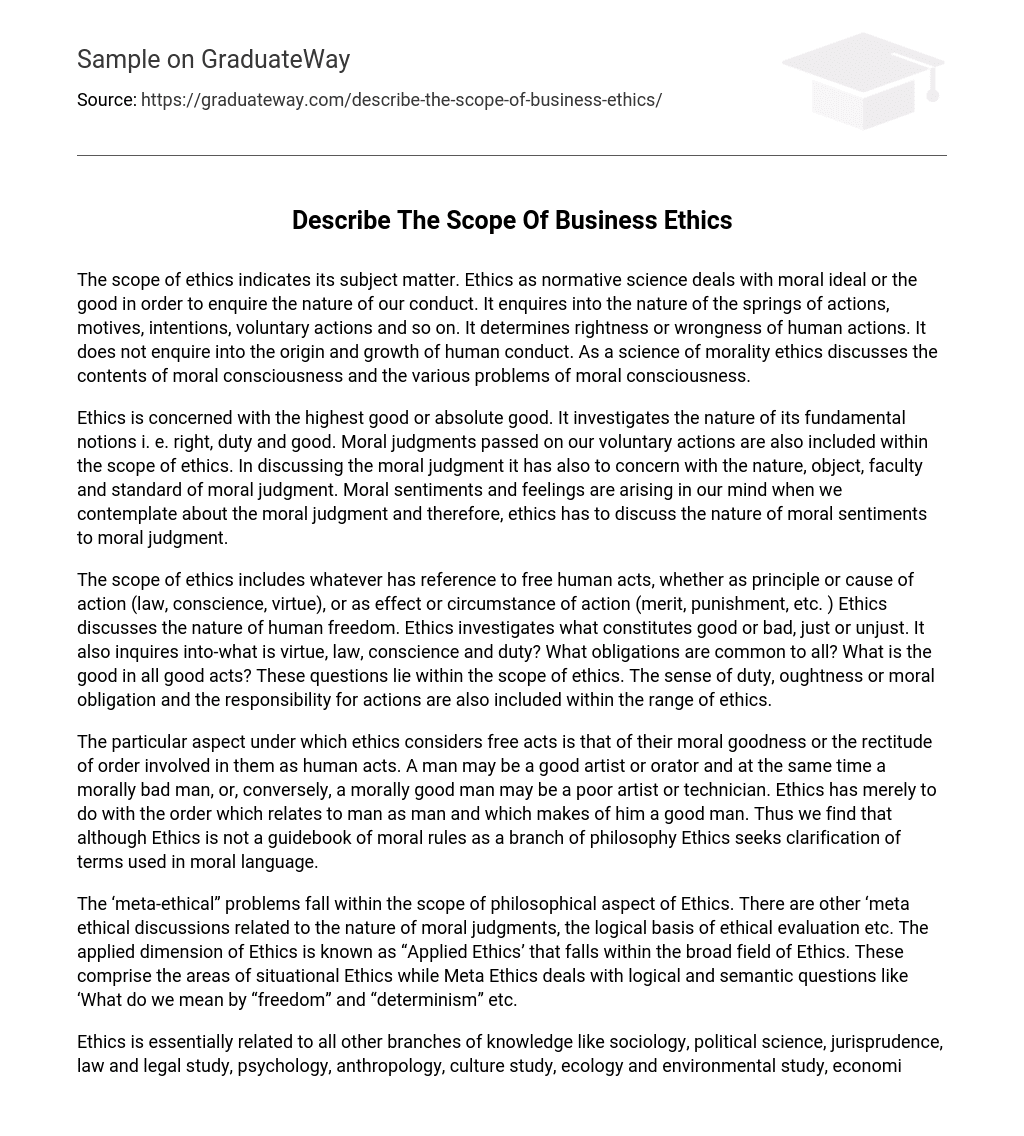The subject matter of ethics is indicated by its scope. Ethics, as a normative science, investigates the moral ideal or the good to understand the essence of our behavior. It explores the characteristics of actions, motivations, intentions, voluntary actions, and more. Its task is to assess the correctness or incorrectness of human actions, but it does not explore the origins and development of human conduct. As a moral science, ethics examines the contents of moral consciousness and addresses different dilemmas associated with moral awareness.
Ethics is focused on the concept of the highest good or absolute good. It delves into the underlying principles of right, duty, and good. Within the realm of ethics, moral judgments are made on our voluntary actions. The nature, object, faculty, and standard of moral judgment must also be considered in these discussions. When contemplating moral judgments, we experience moral sentiments and feelings. Consequently, ethics must delve into the nature of these sentiments in relation to moral judgment.
Ethics encompasses anything related to the choices made by free individuals. This includes principles and motivations for action, such as laws, conscience, and virtues. It also considers the consequences and circumstances of actions, such as deserving merit or punishment. Furthermore, ethics seeks to understand the essence of human freedom and explores concepts of goodness, badness, justice, and injustice. It delves into the nature of virtue, law, conscience, and duty. It identifies common obligations that apply to all individuals and investigates the inherent goodness in any virtuous act. The domain of ethics also encompasses a sense of duty, moral obligation, and the responsibility that individuals bear for their actions.
The realm in which ethics examines free actions is their moral goodness or the correctness of the human order inherent in them. It is possible for a person to be skilled in art or public speaking while being morally corrupt, or conversely, a morally virtuous individual may possess limited talent in art or technical skills. The focus of ethics is solely on the order that pertains to humans and transforms them into virtuous individuals. Consequently, while ethics does not function as a manual dictating moral principles, it strives to elucidate the terminology utilized in moral discourse.
The philosophical aspect of Ethics involves discussions on the nature of moral judgments and the logical foundation of ethical evaluation, also known as “meta-ethical” issues. Additionally, Ethics encompasses a broader field that includes areas like situational Ethics, which falls under its applied dimension called “Applied Ethics”. On the other hand, Meta Ethics concentrates on logical and semantic questions, delving into understanding the meanings of terms like “freedom” and “determinism.”
Ethics is interconnected with various disciplines such as sociology, political science, jurisprudence, law and legal study, psychology, anthropology, culture study, ecology and environmental study, economics, religion, aesthetics and other related fields. It encompasses a broad range of subjects including political issues, sociological problems cultural matters psychological concerns economic challenges environmental dilemmas and religious aspects in the pursuit of the ultimate good. As a result, these matters hold significant significance within the realm of ethics. Furthermore, advancements in technology offer opportunities to expand the scope of ethics for addressing emerging challenges.





